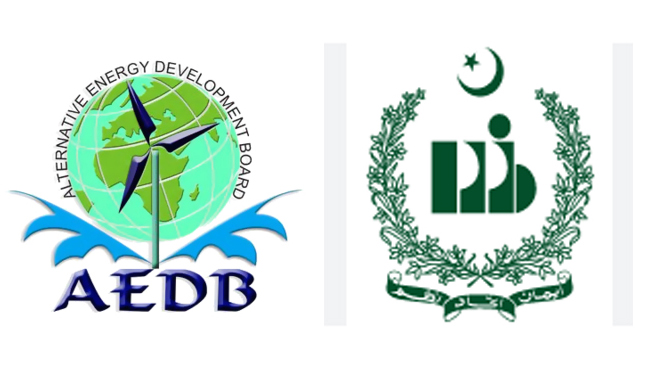AEDB merged with PPIB for ‘smooth processing of all power projects’
ISLAMABAD: The government on Monday announced the much-touted merger of Private Power and Infrastructure Board (PPIB) and Alternate Energy Development Board (AEDB) to pave the way for the enhancement of operational efficiency and facilitation of investors by extending a true ‘one-window’ facility for smooth and seamless development and processing of power projects of all technologies, including Alternative and Renewable Energy (ARE) projects by PPIB as one entity on behalf of the government of Pakistan.
The process to merge both the entities began in 2017 when the Manila-based Asian Development Bank (ADB) linked its loan of $400 million with the merger of two boards, but after one year, the PMLN government had ended for general elections. However, in 2021, in the Senate, the bill was put in place for the merger of the two entities to avoid duplication and overlapping of the functions of both state-owned bodies.
Now, upon the promulgation of Private Power and Infrastructure Board (Amendment) Act, 2023 notified through Gazette of Pakistan, Extraordinary, Part-1, as an Act No. XXVI of 2023 on June 10, 2023, the Alternative Energy Development Board (AEDB) has merged with Private Power and Infrastructure Board (PPIB). Consequently, the Alternative Energy Development Board Act, 2010 (Act XIV of 2010) stands repealed/dissolved, says the announcement issued by PPIB MD Shah Jahan Mirza.
“The whole team is excited to take fresh responsibility as a challenge for achieving new horizons of excellence and fully poised to harness the indigenous, alternative, and renewable potential of the country for powering Pakistan with clean, green, and sustainable electricity.”
While explaining the objectives of the merger, the official of Power Division told ‘The News’ that in 2003, the Alternative Energy Development Board (AEDB) was created and thereafter was given legal status in 2010 through the enactment of the Alternative Energy Development Board Act, 2010 (Act XIV of 2010) as a statutory body to “facilitate development and generation of alternative or renewable energy in order to achieve sustainable economic growth with the transfer of technology for the development of an indigenous technological base through a diversified energy generation”.
Originally, the Alternative and Renewable Energy (ARE) project development was within the mandate of PPIB through Policy for Power Generation Projects 2002 and short, medium, and long-term targets were envisioned thereunder.

From the administrative perspective, the AEDB was essentially tasked with similar functions as that of PPIB’s, except that its scope was limited to the development of ARE projects, resulting in duplication of functions, resources and efforts.
The existence of AEDB as a separate administrative unit was contrary to the spirit of “one-window operation” and “ease of doing business,” as investors have to deal with two different entities, having similar mandates and scope of work. It also ran contrary to the concept of creating synergies for optimum output and undermined the concept of cost and resource effectiveness.
With the current structure and resources, the AEDB was not able to match the expectation of the accelerated pace of government’s renewed focus on the ARE’s development in Pakistan that has been set out in the ARE policy 2019.
The merger of AEDB into PPIB is also part of the overall scheme of the Competitive Trading Bilateral Contract Market (CTBCM), which envisions an Independent Auction Administrator (IAA) for conducting auctions/biddings on behalf of DISCOs for procurement of new power generation capacity. Thus, it is imperative that the IAA functions are carried out by a single entity.
For the reasons above, it was felt that the AEDB might be merged into the PPIB, which has been in existence since 1994, and has therefore developed the requisite skill set and ability to act as a one-window facility for all segments of the energy sector.